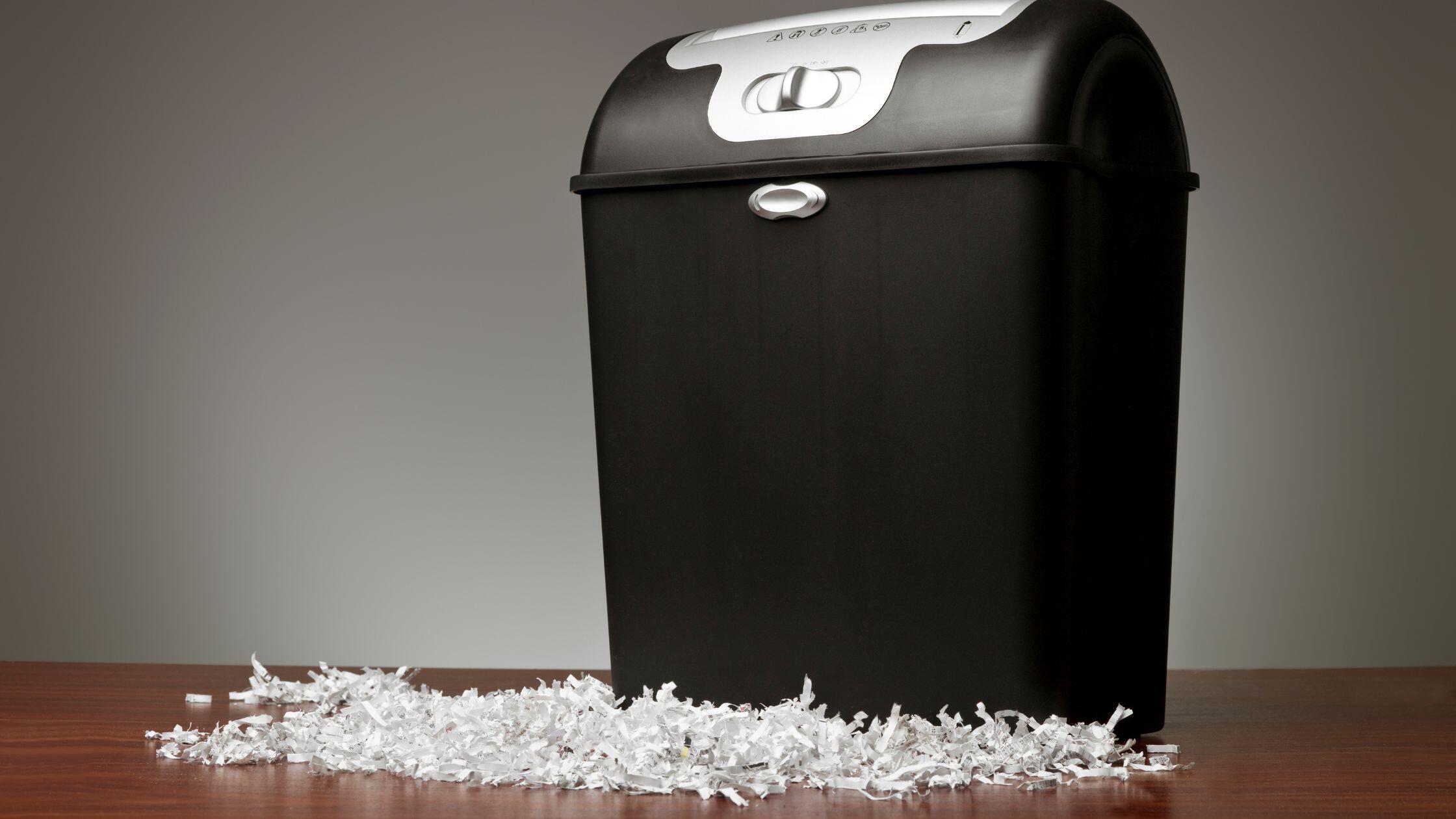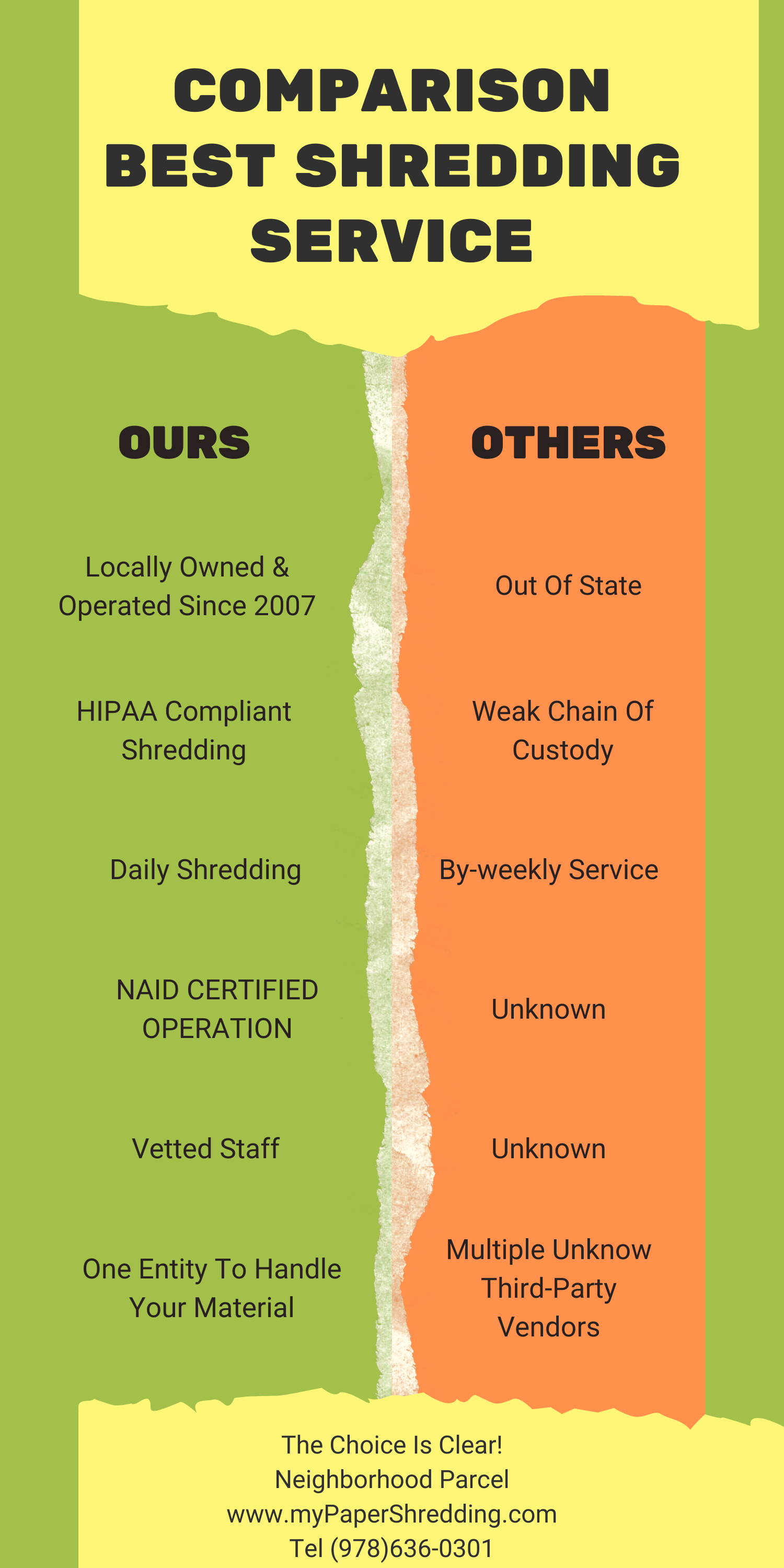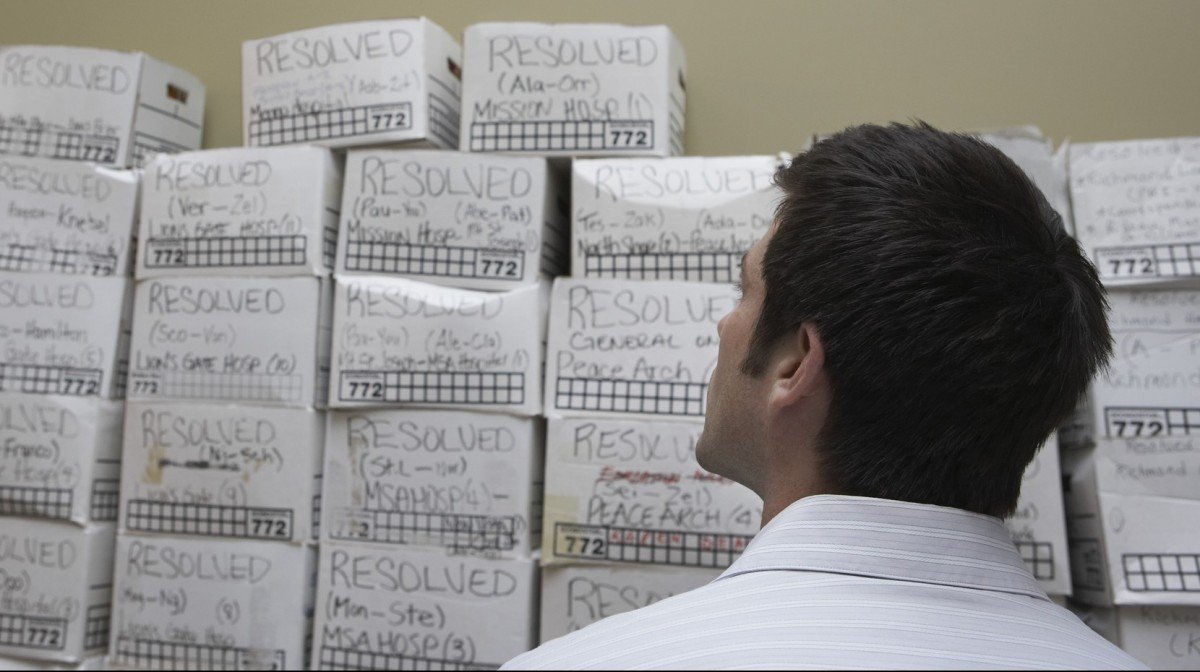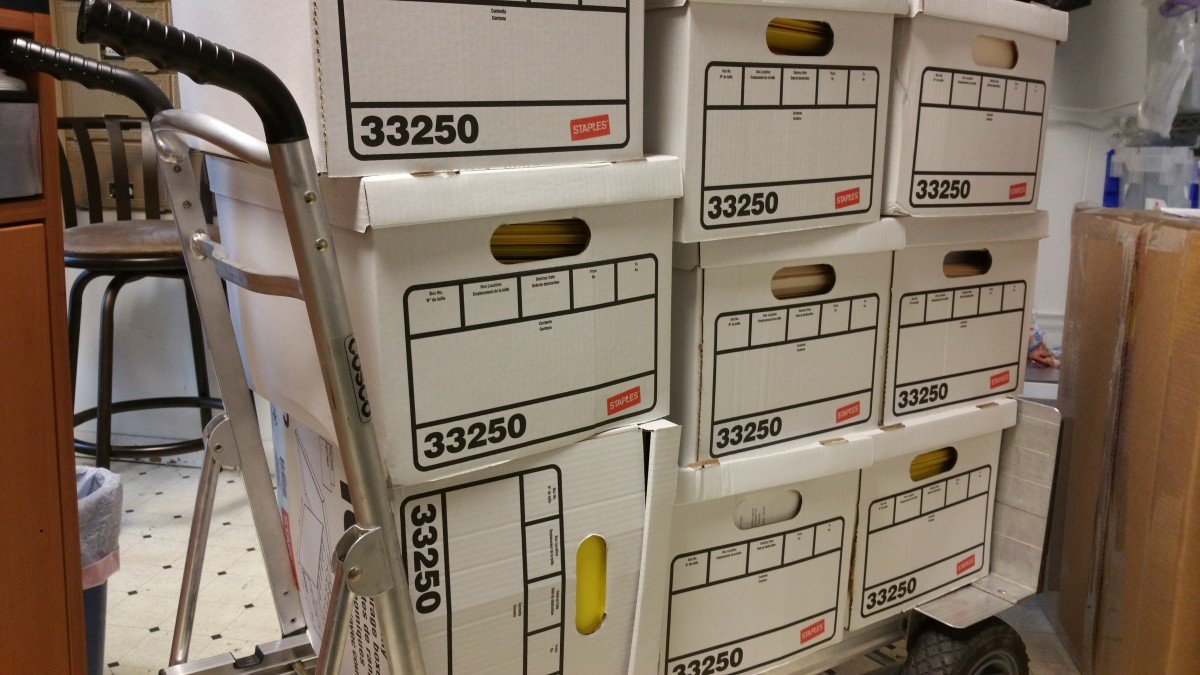
Document Shredding Service
Whether you are looking to dispose of medical records or confidential documents, there are several laws that will govern the way you go about doing it. In this article, we’ll take a look at how to stay compliant with these laws.
Medical record shredding
Whether you work in a hospital, clinic, or healthcare organization, you must be aware of HIPAA-compliant guidelines for shredding medical records. These guidelines are designed to help protect patients and their private health information from identity theft. The Health Insurance Portability and Accountability Act (HIPAA) is a US federal law that sets standards for medical records. It sets out a number of requirements for the collection, storage, sharing, and destruction of Protected Health Information (PHI) in both electronic and paper formats.
HIPAA does not have a specific law about shredding, but some states have more stringent requirements. One of the best ways to ensure you’re HIPAA compliant is to hire a document shredding service. The Health Insurance Portability and Accountability (HIPAA) Act of 1996 requires the secure disposal of PHI. This includes medical records, demographic data, and demographic information about a person. These documents are also required to be recycled when they’re no longer useful.
The HHS Office for Civil Rights has released a number of helpful documents on the shredding of medical documents. The best medical record shredding strategy is to destroy records in a way that they can’t be reconstructed.
GLBA-compliant document shredding
GLBA-compliant document shredding in Houston is required to ensure the safety of consumer financial information. It protects consumer’s private financial information that is provided to financial institutions, such as banks, mortgage brokers, and loan companies. It also sets restrictions on how financial institutions manage and dispose of client documents.
GLBA is administered by the Federal Trade Commission (FTC). The Act applies to financial institutions, including banks and other financial companies. The FTC enforces the Act, and can fine financial institutions up to $100,000 for each violation. To comply with the Act, firms must develop a written information security plan. The plan must include administrative, technical, and physical safeguards to protect sensitive information. It also must include a notice to customers explaining the types of information that are shared with them.
Financial institutions must also protect information that is non-public. This may include credit card information and payment histories. It may also include social security numbers and addresses. This information can be used to hack into an account or steal an identity.
Frequently Asked Questions
While it is possible to shred medical documents yourself, it is recommended to use a professional medical shredding service to ensure the secure and proper disposal of PHI. Professional shredding services, like Mydocumentshredding.com, have the necessary equipment and procedures in place to ensure the secure destruction of sensitive documents and compliance with HIPAA regulations.
Using a secure medical shredding service ensures the proper disposal of physical records containing PHI, which is crucial to prevent unauthorized access or disclosure, maintain compliance with HIPAA regulations, and protect the privacy and security of patients.
Penalties for HIPAA violations are tiered based on the level of negligence and can range from $100 to $50,000 per violation, with a maximum annual penalty of $1.5 million. Violations can also lead to criminal charges, with fines up to $250,000 and imprisonment for up to 10 years.
To ensure your organization is HIPAA compliant, you should conduct regular risk assessments, implement necessary administrative, physical, and technical safeguards, provide ongoing training to employees, regularly monitor and audit access to and use of PHI, and use secure methods for the disposal of PHI.
HIPAA consists of two main rules: the Privacy Rule and the Security Rule. The Privacy Rule sets the standards for who can access and share PHI, whereas the Security Rule establishes standards for securing PHI that is stored or transferred electronically.
HIPAA applies to covered entities and their business associates. Covered entities include healthcare providers, health plans, and healthcare clearinghouses. Business associates are any organizations or individuals that perform activities or services for a covered entity that involves the use or disclosure of PHI.
PHI stands for Protected Health Information and refers to any information that can be used to identify a patient and is related to their past, present, or future physical or mental health condition, the provision of healthcare, or the payment for healthcare.
If you can drop off your material at our Lowell office, you will save even more! We have the lowest Paper shredding rates in area: No transportation surcharges, no hidden fees, pay as you go! Unlike others, we post our rates on line, we have nothing to hide! Great for small quantities and Residential Shredding services.
Every business small or large and household has confidential documents that they collect daily. The day to day functions of any business will produce a large amount of information that could be used against the business by it’s competitors. This list includes; Internal Memos, Drafts of Documents, Quotes, Financial Printouts, Meeting Notes, Employee Records, Pay Stubs, etc…
Over $100 billion a year is lost to information thieves! Did you know that there is NO LAW against Dumpster Diving. After your business has disposed of it’s documents, it has no claim to it’s privacy. Unfortunately, one of the weaknesses of any business is disgruntled employees. Countless new businesses are started by customer lists from an existing business. An easily implemented security plan is the only way to ensure that an upset employee will not make a mistake that they and/or your business could regret for a long time.
It’s the Law!
Our MA government is getting involved with protecting individuals from information misuse. This is putting the burden on businesses and private individuals to protect the documents and information they are charged with. For more on Latest MA privacy Laws. Violations of such law can cost as much as $5000.00 per incident!
HIPAA Regulations
In 1996, Congress enacted theHealth Insurance Portability and Accountability Act . Any business that is responsible for keeping any medical records or transferring medical information must be familiar with this law. HIPAA is a serious and violations can be costly
Environment
When you pay an employee to shred documents what is done with the waste? Most likely it is put into the trash. We recycle all of our waste materials and recycle 100% of it.
Did you know that for every 1 ton of paper recycled:
- 7000 gallons of water are saved
- Between 17 and 31 trees are saved
- 4000 KWh of electricity is saved
- 60 pounds of air borne pollutants are not expelled
Prevent Identity Theft
Identity theft is now the fastest growing crime in the country. Most identity theft is done through simple means of collecting papers thrown in the trash. Simple strip shredders do not prevent criminals from obtaining the information they need to steal your identity.
We accept all major credit cards, business checks and cash
No, simply stop by during our store hours and we will be glad to help you. Our office location here. For Off Site shredding, you will need to have reservation and allow us a minimum of 24 Hrs to make the pick up.
We know that other companies charge hidden fees from Fuel and environment surcharges to pick up charges. At Neighborhood Parcel, you pay as you go! Simply drop off the documents, you pay by the pound. No fuel or Environment surcharges. We make shredding convenient and affordable. See Shredding Rates.
Scheduled shredding vs. off-site shredding
Using a shredding service will not only protect your sensitive data, it will also alleviate your liability related to legal compliance. It can also help you save money by eliminating the need to purchase, maintain, and dispose of a shredding truck. There are several types of shredding services, and the decision between using on-site shredding or off-site shredding is ultimately up to you. The type of service you choose will depend on your business needs. It’s also a good idea to know exactly what you’re getting for your money.
For example, the on-site shredding model is a slightly more expensive and technically advanced solution. The onsite shredding model is a lot like the off-site shredding model, with the exception that the shredded papers are recycled into various paper products. The onsite shredding model involves the use of a mobile shredding truck. This is a much more convenient method of disposing of sensitive documents and can be done at your whim.
Educate employees on information security policies
Educating employees on information security policies is one way to improve the security of your business. These practices can help prevent data breaches and prevent human error. One important part of educating employees on information security is ensuring that they understand the procedures for reporting breaches. Having a security breach plan in place will prevent large-scale losses of data. If your organization handles patient data, it should also be prepared for HIPAA compliance.
Another way to educate employees on information security policies is to ensure that they know the safest ways to use their personal devices. These devices can hold valuable information and should be protected by a password or biometric authentication.
It’s also important to remember that if your employees have a personal computer, they must ensure that it is connected to a secure network. Employees should never leave their computers unattended. They should also back up their information, and ensure that it is secure. It’s also important to teach employees how to protect their passwords. This can include training on recognizing phishing attacks and social engineering attacks.





